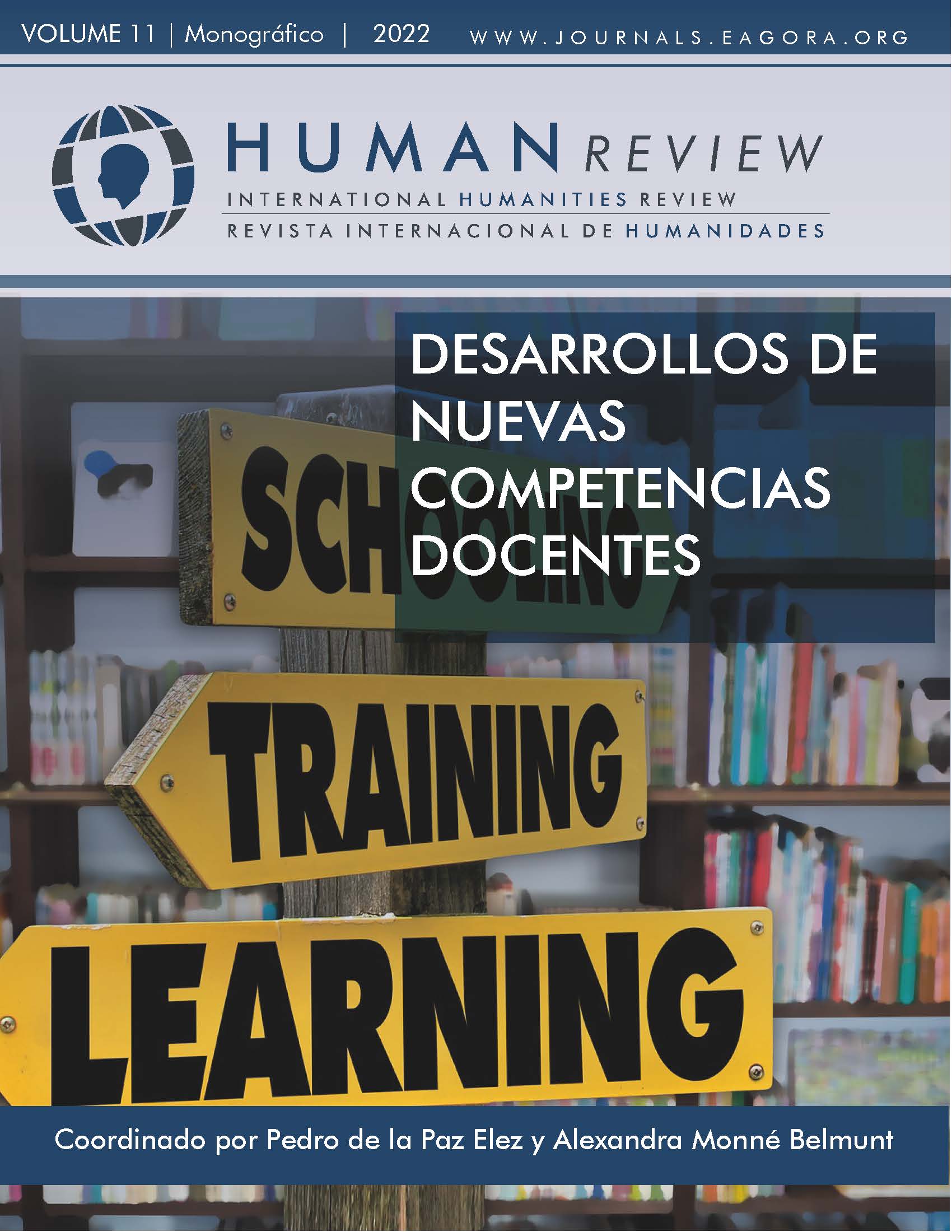Social entrepreneurship and active citizenship through experimental learning
An interuniversity experience between two countries
DOI:
https://doi.org/10.37467/revhuman.v11.3847Keywords:
Teaching, Training, University education, Experiential learning, Educational game, Social program, Constructivist approaches to learningAbstract
As part of the European project Playeurope, the experiences of the students of the degrees in Early Childhood and Primary Education are wanted to know to raise awareness about the importance of being active citizens. The research carried out in 2022 retains a quantitative descriptive design, combined with qualitative
aspects. There is a sample of two hundred students from Spain and Italy. The results deepen the lack of training in this regard at the university level. Having made the Success Stories Guide and the Guide to be a social entrepreneur has turned out to be a significant advance in the learning of future teachers.
References
Calanchez Urribarri, Á., Ríos Cubas, M. A., Zevallos Aquino, R. L., & Silva Peralta, F. J. (2022). Innovación y emprendimiento social como estrategia para afrontar la Pandemia COVID-19. Revista de Ciencias Sociales, 28(1), 275-287. https://bit.ly/3RWV12t
Cantillo, N., Pedraza, C. J., & Suarez, H. (2021). Formación del emprendimiento social: Compromiso de la Universidad de la Guajira en Colombia. Revista de Ciencias Sociales, 27(1), 216-229. https://bit.ly/3OBRkfo
Charsky, D. (2010). From edutainment to serious games: A change in the use of game characteristics. Games and culture, 5(2), 177-198. https://doi.org/10.1177/1555412009354727
Daher, M., Rosati, A., Hernández, A., Vásquez, N., & Tomicic, A. (2022). TIC y metodologías activas para promover la educación universitaria integral. Revista Electrónica de Investigación Educativa, 24(2), 1-18. https:// doi.org/10.24320/redie.2022.24.e08.3960
Diéguez, A. (2020). ¿Existe el método científico? Filosofía y ciencia en el siglo XXI. Revista Tiempo y Clima, 5(70), 12-26. https://bit.ly/3PCYT6X
Granados, S. B., Lozano, W. C., & Bossio, M. A. R. (2022). Experiencia docente con entornos virtuales en psicología del deporte, antes y durante la pandemia Covid-19. RIDU, 16(1), 1-34. https://doi.org/10.19083/ ridu.2022.1438
Gupta, P., Chauhan, S., Paul, J., & Jaiswal, M. P. (2020). Social entrepreneurship research: A review and future research agenda. Journal of Business Research, 113(3), 209-229. https://doi.org/10.1016/j.jbusres.2020.03.032
Kolb, D. y Kolb, A. (2017). The experiential Educator: principles and practices of Experiential Learning. Kaunakakai. Kuric, S., Sanmartín, A., Ballesteros, J.C., Calderón, D. (2020). Jóvenes en pleno desarrollo y en plena pandemia. Cómo hacen frente a la emergencia sanitaria. Madrid. Centro Reina Sofía sobre Adolescencia y Juventud, Fad. http://doi.org/10.5281/zenodo.4290170
López, J. A. (2022, marzo 21). Los Entornos VUCA y el Nuevo Paradigma Empresarial. https://bit.ly/3ow9TXY Maturana, H. y Dávila, X. (2021). La revolución reflexiva. Una invitación a crear un futuro de colaboración. Paidós.
Monzón, J. L., & Chaves, R. (2017). Recent evolutions of the Social Economy in the European Union. European Economic and Social Committee, 10(2), 1-27. https://bit.ly/3vcm4wD
Pacheco, P. F., Quezada, J. C. A., Atiencie, N. G. Á., & López, J. F. C. (2019). Jóvenes universitarios y su apuesta al emprendimiento social. Revista Economía y política, 15(30). 20-28. https://bit.ly/3zyMc7K
Paz, A., Harris, J., y Franco, F. (2016). Responsabilidad social gestión compartida con el emprendedor social en empresas mixtas del sector petrolero. Económicas CUC, 37(2), 47-68. http://dx.doi.org/10.17981/ econcuc.37.2.2016.03
Porlán, R. (2020) El cambio de la enseñanza y el aprendizaje en tiempos de pandemia. Revista de Educación Ambiental y Sostenibilidad, 2(1), 1502. https://bit.ly/3PDG1ok
#PlayEurope (2022, junio 13). ¡Edugames para el fomento de la ciudadanía activa! https://www.playeurope- project.eu/es/
Sánchez, J., Martín, S., Bel Durán, P., & Lejarriaga, G. (2019). Educación y formación en emprendimiento social: características y creación de valor social sostenible en proyectos de emprendimiento social. Fundación Universidad Central. https://bit.ly/3PKGsgY
Downloads
Published
How to Cite
Issue
Section
License
Those authors who publish in this journal accept the following terms:
- Authors will keep the moral right of the work and they will transfer the commercial rights.
- After 1 year from publication, the work shall thereafter be open access online on our website, but will retain copyright.
- In the event that the authors wish to assign an Creative Commons (CC) license, they may request it by writing to publishing@eagora.org









